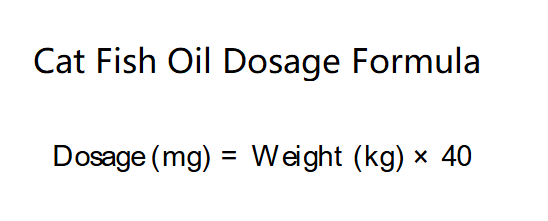 Home
Home
 Back
Back

Definition: Fish oil is a natural dietary supplement extracted from the tissues of fatty fish such as salmon, mackerel, and sardines. It is particularly valued for its high concentration of omega-3 fatty acids, specifically EPA (eicosapentaenoic acid) and DHA (docosahexaenoic acid). These essential nutrients are crucial for cats because, unlike some other animals, cats cannot synthesize omega-3 fatty acids on their own and must obtain them through their diet.
Benefits: Incorporating fish oil into your cat's diet can offer a multitude of health benefits. It helps maintain a shiny, healthy coat by reducing dryness and flakiness. The anti-inflammatory properties of omega-3s can alleviate symptoms of arthritis, making it easier for older cats to move comfortably. Additionally, fish oil supports brain development in kittens and cognitive function in older cats. It also promotes retinal health, which is vital for good vision, and may assist in managing chronic conditions such as kidney disease and heart disorders.
CopyThe fish oil dosage calculator is designed to provide a precise recommendation based on your cat’s weight. The calculation is straightforward and uses the following formula:
Explanation: The standard dosage is set at 40 mg of combined EPA and DHA per kilogram of your cat’s body weight. To use the calculator, simply input your cat’s weight. If the weight is provided in pounds, the calculator will automatically convert it to kilograms (1 kg = 2.2 lbs) before performing the calculation. This ensures that the dosage is accurate and tailored to your cat’s specific needs.
Fish oil is generally considered safe for cats when administered in the correct dosage. However, it is important to be cautious, as excessive supplementation can lead to adverse effects such as gastrointestinal upset (vomiting or diarrhea), weight gain due to increased caloric intake, or even a compromised immune system. Cats with specific health conditions, such as hyperlipidemia (elevated levels of fats in the blood) or pancreatitis, should avoid fish oil unless explicitly recommended by a veterinarian. Always consult your vet before introducing any new supplement to your cat’s diet, especially if your cat has pre-existing health issues or is on medication.
Tips: Administering fish oil to your cat can be done in several ways. The most common method is to mix the oil directly into your cat’s food. If you are using capsules, simply puncture the capsule and squeeze the contents onto your cat’s meal. Start with a lower dose and gradually increase it to the recommended amount to allow your cat’s digestive system to adjust. It is crucial to choose high-quality, cat-specific fish oil products from reputable brands to ensure purity and avoid harmful additives or excessive levels of vitamins A and D, which can be toxic in large amounts. Always store fish oil in a cool, dark place to prevent oxidation and maintain its efficacy.
| Cat Weight (lb) | Cat Weight (kg) | Dosage (mg of EPA + DHA) |
|---|---|---|
| 5 | 2.27 | 90.8 |
| 7 | 3.18 | 127.2 |
| 10 | 4.54 | 181.6 |
| 15 | 6.80 | 272.0 |
| 20 | 9.07 | 362.8 |